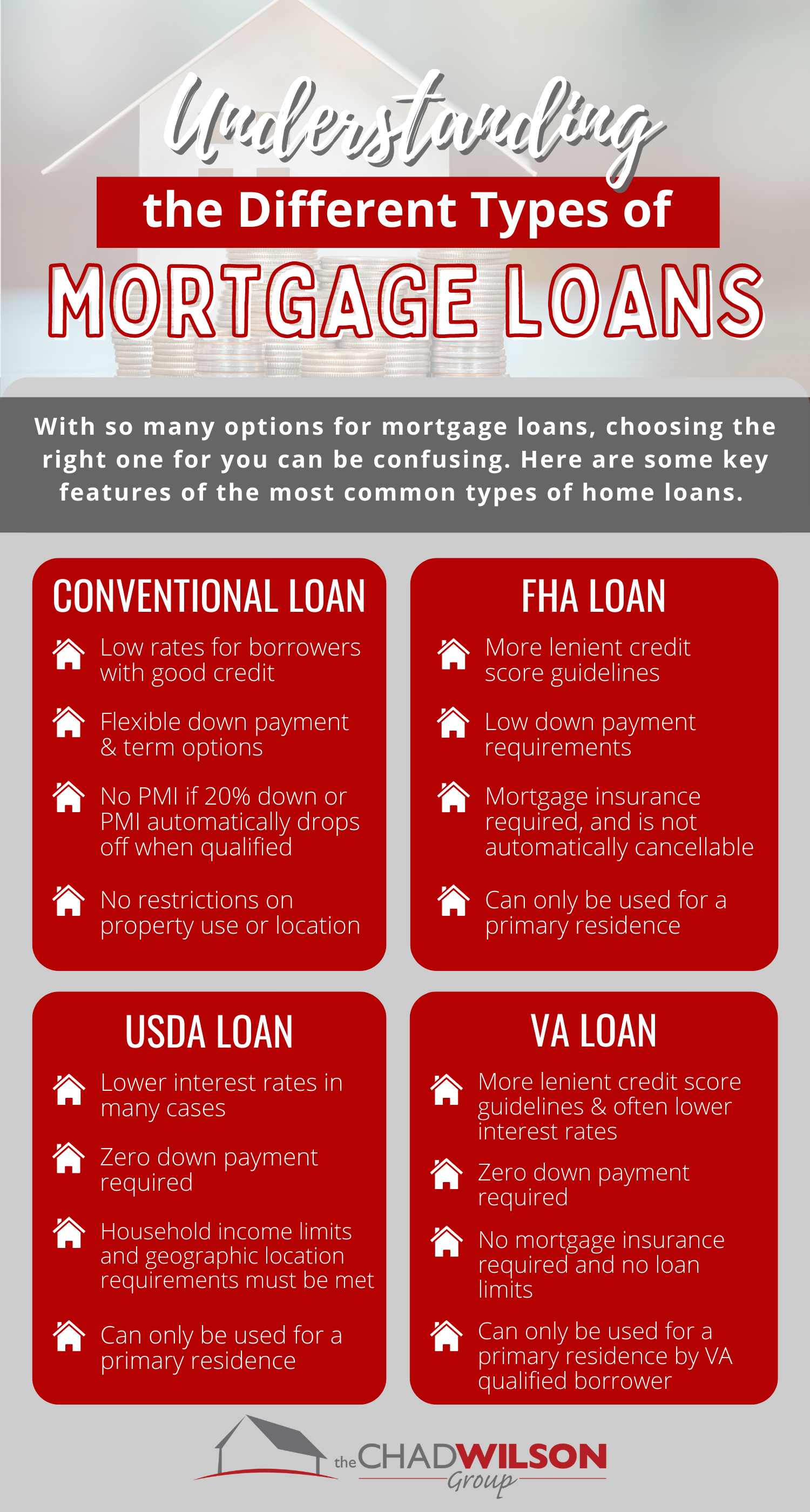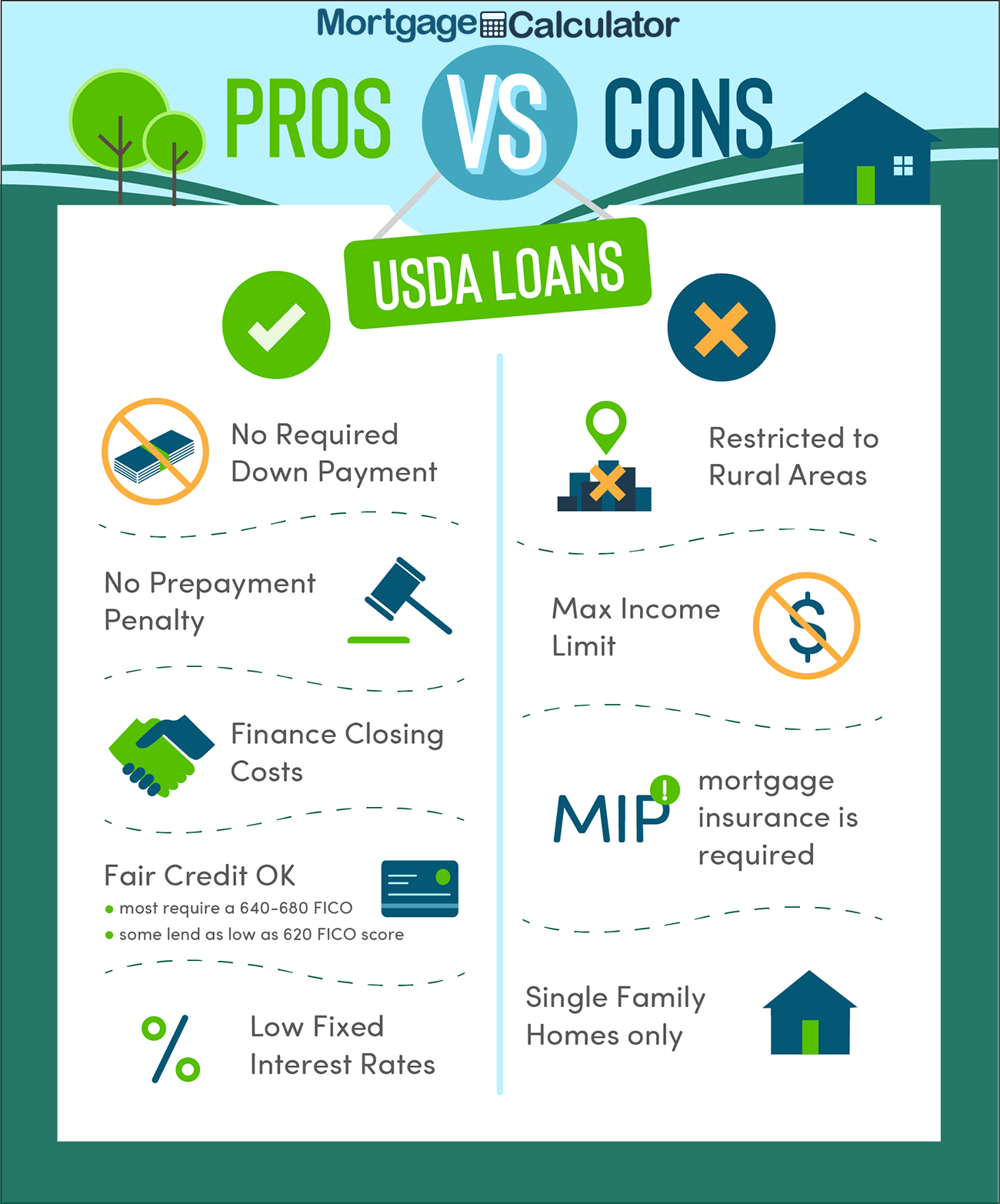Step-by-Step Procedure to Apply for Conventional Mortgage Loans
Step-by-Step Procedure to Apply for Conventional Mortgage Loans
Blog Article
Comprehending the Different Kinds of Home Loan Fundings Readily Available for First-Time Homebuyers and Their Unique Advantages
Browsing the array of mortgage finance options offered to novice property buyers is crucial for making informed economic decisions. Each kind of loan, from conventional to FHA, VA, and USDA, presents one-of-a-kind benefits tailored to diverse customer needs and situations.
Standard Finances
Traditional finances are a keystone of home mortgage financing for newbie homebuyers, supplying a trustworthy alternative for those aiming to acquire a home. These financings are not guaranteed or ensured by the federal government, which distinguishes them from government-backed lendings. Commonly, traditional financings need a greater credit rating and a much more considerable down payment, often ranging from 3% to 20% of the acquisition rate, depending upon the lending institution's needs.
One of the significant benefits of standard financings is their flexibility. Consumers can pick from various financing terms-- most commonly 15 or three decades-- allowing them to straighten their mortgage with their economic objectives. In addition, standard financings might use reduced rate of interest contrasted to FHA or VA fundings, especially for customers with strong credit score accounts.
An additional advantage is the lack of ahead of time home mortgage insurance policy costs, which prevail with federal government fundings. Nonetheless, private home loan insurance coverage (PMI) may be called for if the deposit is much less than 20%, yet it can be removed once the consumer achieves 20% equity in the home. On the whole, conventional fundings offer a sensible and appealing financing alternative for novice buyers seeking to browse the home loan landscape.
FHA Lendings
For several novice property buyers, FHA lendings represent an obtainable pathway to homeownership. One of the standout features of FHA financings is their reduced down payment need, which can be as reduced as 3.5% of the acquisition rate.
In addition, FHA fundings allow for greater debt-to-income proportions compared to standard car loans, fitting customers that might have existing monetary responsibilities. The rates of interest associated with FHA financings are often affordable, more enhancing price. Consumers also take advantage of the capability to include certain closing expenses in the funding, which can ease the upfront monetary concern.
However, it is necessary to note that FHA car loans call for home loan insurance policy costs, which can increase monthly payments. In spite of this, the total benefits of FHA finances, consisting of access and lower initial prices, make them an engaging option for newbie buyers looking for to enter the realty market. Understanding these car loans is essential in making informed decisions concerning home funding.
VA Loans
VA loans supply a distinct funding service for eligible veterans, active-duty service members, and specific participants of the National Guard and Books. These lendings, backed by the united state Department of Veterans Matters, offer a number of benefits that make own a home extra obtainable for those pop over here who have actually served the country
Among the most significant benefits of VA lendings is the lack of a deposit demand, enabling qualified customers to finance 100% of their home's purchase price. This feature is particularly helpful for newbie buyers who may have a hard time to save for a significant down repayment. Furthermore, VA finances generally come with competitive rate of interest, which can cause lower regular monthly repayments over the life of the funding.
Another notable benefit is the lack of personal home loan insurance coverage (PMI), which is frequently called for on conventional fundings with reduced deposits. This exemption can cause significant savings, making homeownership more inexpensive. VA finances provide versatile credit rating demands, enabling consumers with reduced credit score scores to qualify more conveniently.
USDA Lendings
Checking out financing choices, newbie buyers may find USDA finances to be a compelling choice, especially for those looking to acquire property in suv or country areas. The United States Division of Agriculture (USDA) provides these lendings to advertise homeownership in marked rural areas, giving an exceptional chance for eligible customers.
One of the standout features of USDA financings is that they call for no deposit, making it easier for new purchasers to enter the real estate market. Furthermore, these lendings commonly have affordable interest prices, which can result in decrease regular monthly payments contrasted to conventional funding options.
USDA financings likewise feature versatile credit scores needs, allowing those with less-than-perfect credit to qualify. The program's revenue limitations make certain that support is routed towards low to moderate-income family members, even more sustaining homeownership objectives in rural neighborhoods.
Moreover, USDA fundings are backed by the federal government, which decreases the danger for lending institutions and can improve the authorization procedure for consumers (Conventional mortgage loans). Consequently, novice buyers taking into consideration a USDA finance might find it to be a helpful and available option for accomplishing their homeownership desires
Unique Programs for First-Time Customers
Many novice property buyers can take advantage of unique programs made to aid them in browsing the complexities of purchasing their first home. These programs typically supply economic motivations, education and learning, and sources customized to the one-of-a-kind needs of novice buyers.

In Addition, the HomeReady and Home Possible programs by Fannie Mae and Freddie Mac satisfy reduced to moderate-income purchasers, offering adaptable home visit loan alternatives with decreased mortgage click here for info insurance policy expenses.
Educational workshops hosted by different organizations can additionally help new purchasers understand the home-buying procedure, improving their possibilities of success. These programs not only relieve monetary worries however also equip customers with understanding, inevitably helping with a smoother change into homeownership. By discovering these special programs, newbie homebuyers can find valuable resources that make the desire of owning a home a lot more possible.
Final Thought

Traditional financings are a keystone of home mortgage financing for novice homebuyers, giving a trusted alternative for those looking to buy a home. These fundings are not insured or assured by the federal government, which differentiates them from government-backed fundings. Furthermore, conventional financings may offer reduced rate of interest rates contrasted to FHA or VA fundings, especially for consumers with strong credit history profiles.
In addition, FHA fundings allow for greater debt-to-income ratios contrasted to conventional financings, fitting borrowers that may have existing monetary obligations. In addition, VA lendings commonly come with competitive passion rates, which can lead to decrease monthly settlements over the life of the car loan.
Report this page